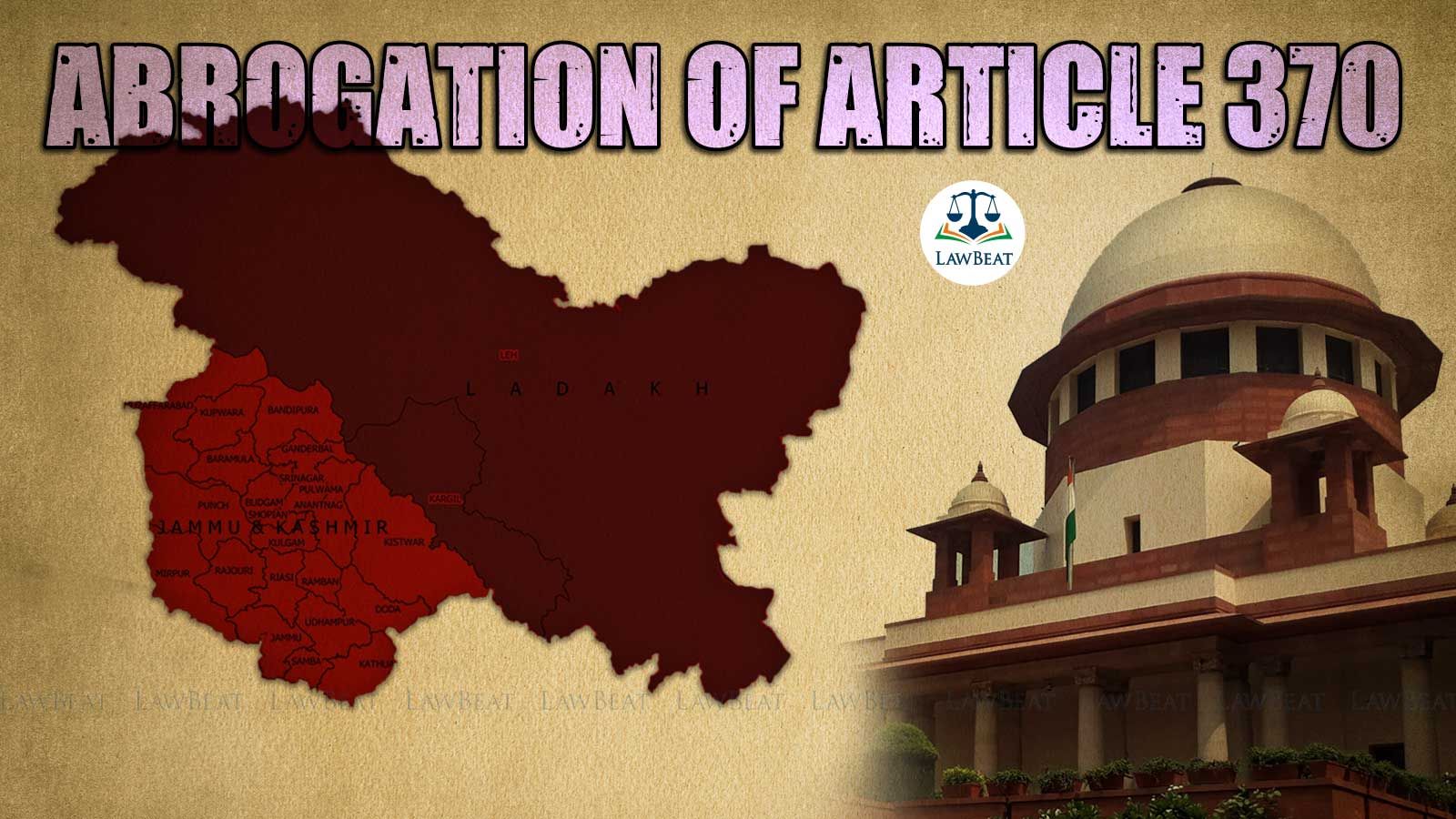"Article 370 main reason for eroding Indian identity from Kashmir Valley": Kashmiri Hindu youth organization approaches Supreme Court seeking intervention

The pleas challenging abrogation of Article 370 have submitted that said provision was a self-contained Code which defined and regulated the relationship between the State of Jammu and Kashmir and the Union of India.
'Youth 4 Panun Kashmir', a Kashmiri Hindu youths movement has approached the Supreme Court of India seeking intervention in the pleas being heard by it against the abrogation of Article 370.
Notably, the Supreme Court will start hearing the batch of petitions challenging abrogation of Article 370 from August 2, 2023.
The applicant being victims of 'ethnic cleansing akin to genocide' have informed the top court that Article 370 and 35A has helped the Kashmiri majority in their separatist movement.
"...Article 370and Article 35A became a major reason for eroding the sentiment of Indian identity within the Kashmir Valley. The reason why the present applicant is moving this Intervening Application is because he strongly feels that Article 370 and Article 35A were the biggest reason for the lack of psychological integration of the erstwhile State of Jammu & Kashmir with the rest of India and became a breeding ground for separatist ideas leading to the ethnic cleansing of innocent Kashmiri Pandits....", the IA adds.
Filed through Advocate Siddharth Praveen Acharya, the intervention application submits that since abrogation of Article 370 and Article 35A targeted killings of Hindus have increased in the erstwhile State of Jammu & Kashmir reaching upto 40 killings of the minority Hindus.
Article 370 & Article 35A is submitted to have violated the basic structure of the Constitution as it never recognized the supremacy
of the Indian Constitution and was an attack on the unity and sovereignty of India.
"Article 370 and Article 35A never led the democratic and republican form of Government. It disregarded the federal & secular
character of the Indian Constitution as a separate Jammu and Kashmir Constitution allowed dominance of one religion and ethnic character over the others...", application adds.
It is further the applicant's submission that erstwhile State of Jammu and Kashmir had become vulnerable to both external aggression and internal rebellion, and Article 370 significantly contributed to the hostile elements’ ability to sow internal unrest and facilitate external aggression.
Notably, another intervention has been filed by a Kashmiri Pandit, namely Virender Kaul, supporting the constitutional orders on abrogation, stating that Article 370 & Article 35A blatantly disregarded the interest of Kashmiri Pandit Community.
"The Article 370 and the issue of autonomy were designed to be manipulated in such a way that a virtual “Sheikdom or Sultanate or Mini Pakistan was nurtured with the Indian tax payer’s money. That The Applicant feels that the Article 370 was a dead letter which had to go as it was a temporary Article and by design it was anti-minorities and pro-majority of the State Population and this led to the major exodus of the Kashmiri Pandit community since 1947...", Kaul has told the court in his IA.
Recently, the central government had filed an affidavit before the Supreme Court, submitting that the abrogation of Article 370 was a historic constitutional step which has brought unprecedented development, progress, security and stability to the region, which was often missing during the old Article 370 regime.
In its most recent counter affidavit filed in the pleas challenging the abrogation of Article 370, the Union of India has further submitted,
" ...since 2019, the entire region has witnessed an unprecedented era of peace, progress and prosperity. It is submitted that, life has returned to normalcy in the region after over three decades of turmoil. It is submitted that schools, colleges, universities, hospitals and other public institutions are functioning efficiently without any strikes or any kind of disturbances during the last three years. The earlier practice of daily hartals, strikes, stone pelting and bandhs are things of the past now."
Adding that government has adopted a zero tolerance policy towards terrorists, the Union has added that the work on transit accommodation for the Kashmiri Pandits for their safe return to the valley is in the advanced stage and is expected to be majorly completed in the next one year.
In April last year, the Top Court had said that they will consider listing the batch of petitions challenging the abrogation of Article 370 in Jammu and Kashmir before a 5 judges bench after summer vacations.
One of the petitions has stated that "Article 370 of the Constitution of India is a self-contained Code which defined and regulated the relationship between the State of Jammu and Kashmir and the Union of India. Apart from Article 370, Article 1 of the Constitution of India would apply to the State of J & K."
Case Title: IN Re: ARTICLE 370 OF THE CONSTITUTION
